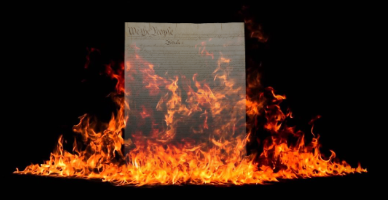
How to properly oversee the executive branch has been something of an … obsession … here since the beginning of the blog.
And I think the calls for the Democrats to form an unofficial “shadow cabinet” can contribute to that.
A shadow cabinet is a, usually informal, system by which a minority party assigns individuals to “shadow” the roles of certain formally-appointed government figures. Their role is generally political: to keep an eye on what the majority party is up to and to be experienced and prepared to take over should the majority shift.
But it doesn’t have to be informal.
It could be the basis for a strong system of formal oversight.
Say, for example, that we implemented a formal system by which the second-place finisher in the Presidential election were formally sworn in as “Shadow President” (and similarly for a “Shadow Vice-President”).
The Shadow President appoints (with the “advice and consent” of only the minority parties in the Senate) a Shadow Cabinet, with members appointed to shadow the roles of the appointed heads of the various Executive departments and agencies.
And then we gave the Shadow Cabinet control over the internal oversight groups of each department or agency, and required that they be given real-time, read-only access to all data from the department or agency that they’re shadowing.
And gave them subpoena power and the ability to prosecute criminal cases for abuse of power, civil liberties violations and similar topics.
I have made a similar suggestion here many times.
There’s a tag here for that, even.
But doing this by formalizing the roles of a Shadow President and Cabinet would be a particularly effective way of approaching executive oversight, and would have the additional benefit of preparing a whole group of individuals for taking the roles of the actual Cabinet when the presidency shifts between parties in an election.
This would ideally be coupled to making the President and Vice-President be elected via ranked-choice voting and the legislature’s membership proportional to party membership.
The resulting system would be much more responsive to the voters, and much less susceptible to abuse than our current system is.
Being responsive to the desires of the voters is the actual point of democratic systems.
And being susceptible to abuse is the greatest fault of governments.
So, ya know, win/win.
- You Should Read This: The Hater’s Guide To The AI Bubble - 2025-07-22
- Archive: Using Copyright to Protect Privacy - 2025-07-21
- Archive: How to Manage Advertising on K5? - 2025-07-18

One thought on “For Reals: The U.S. Should Have A Shadow Cabinet”